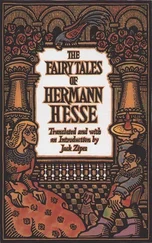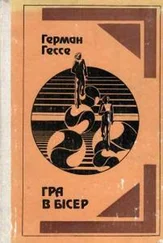Perhaps even the worst translation could not conceal the “message” of Hesse’s novel. But only a subtle, sensitive one can render what Thomas Mann called “the parody of biography and the grave scholarly attitude.” It is easy, too easy, to be sober and grave. That is in fact the most serious shortcoming of Hesse’s most ardent admirers at present. This new translation of The Glass Bead Game offers the American reader the opportunity, as Thomas Mann suggested, to dare to laugh. If parody alone can adequately render the reality of our times, only irony offers us the freedom and detachment that are the essential condition of responsible analysis and action. This is the final aesthetic meaning of The Glass Bead Game.
May 1969
THEODORE ZIOLKOWSKI
The Glass Bead Game
A tentative sketch of the life of
Magister Ludi Joseph Knecht
together with
Knecht’s posthumous writings
edited by
HERMANN HESSE
Dedicated to the Journeyers to the East
CONTENTS
The Glass Bead Game: A General Introduction to Its History for the Layman
The Life of Magister Ludi Joseph Knecht
1 The Call
2 Waldzell
3 Years of Freedom
4 Two Orders
5 The Mission
6 Magister Ludi
7 In Office
8 The Two Poles
9 A Conversation
10 Preparations
11 The Circular Letter
12 The Legend
Joseph Knecht’s Posthumous Writings
The Poems of Knecht’s Student Years
The Three Lives
1 The Rainmaker
2 The Father Confessor
3 The Indian Life
THE GLASS BEAD GAME: A GENERAL INTRODUCTION TO ITS HISTORY FOR THE LAYMAN
…Non entia enim licet quodammodo levibusque hominibus facilius atque incuriosius verbis reddere quam entia, veruntamen pio diligentique rerum scriptori plane aliter res se habet: nihil tantum repugnat ne verbis illustretur, at nihil adeo necesse est ante hominum oculos proponere ut certas quasdam res, quas esse neque demonstrari neque probari potest, quae contra eo ipso, quod pii diligentesque viri illas quasi ut entia tractant, enti nascendique facultati paululum appropinquant.
ALBERTUS SECUNDUS tract. de cristall. spirit. ed. Clangor et Collof. lib. I, cap. 28.
In Joseph Knecht’s holograph translation: …For although in a certain sense and for light-minded persons non-existent things can be more easily and irresponsibly represented in words than existing things, for the serious and conscientious historian it is just the reverse. Nothing is harder, yet nothing is more necessary, than to speak of certain things whose existence is neither demonstrable nor probable. The very fact that serious and conscientious men treat them as existing things brings them a step closer to existence and to the possibility of being born.
IT is OUR intention to preserve in these pages what scant biographical material we have been able to collect concerning Joseph Knecht, or Ludi Magister Josephus III, as he is called in the Archives of the Glass Bead Game. We are not unaware that this endeavor runs, or seems to run, somewhat counter to the prevailing laws and usages of our intellectual life. For, after all, obliteration of individuality, the maximum integration of the individual into the hierarchy of the educators and scholars, has ever been one of our ruling principles. And in the course of our long tradition this principle has been observed with such thoroughness that today it is exceedingly difficult, and in many cases completely impossible, to obtain biographical and psychological information on various persons who have served the hierarchy in exemplary fashion. In very many cases it is no longer even possible to determine their original names. The hierarchic organization cherishes the ideal of anonymity, and comes very close to the realization of that ideal. This fact remains one of the abiding characteristics of intellectual life in our Province.
If we have nevertheless persisted in our endeavor to determine some of the facts about the life of Ludi Magister Josephus III, and at least to sketch the outlines of his character, we believe we have done so not out of any cult of personality, nor out of disobedience to the customs, but on the contrary solely in the service of truth and scholarship. It is an old idea that the more pointedly and logically we formulate a thesis, the more irresistibly it cries out for its antithesis. We uphold and venerate the idea that underlies the anonymity of our authorities and our intellectual life. But a glance at the early history of that life of the mind we now lead, namely, a glance at the development of the Glass Bead Game, shows us irrefutably that every phase of its development, every extension, every change, every essential segment of its history, whether it be seen as progressive or conservative, bears the plain imprint of the person who introduced the change. He was not necessarily its sole or actual author, but he was the instrument of transformation and perfection.
Certainly, what nowadays we understand by personality is something quite different from what the biographers and historians of earlier times meant by it. For them, and especially for the writers of those days who had a distinct taste for biography, the essence of a personality seems to have been deviance, abnormality, uniqueness, in fact all too often the pathological. We moderns, on the other hand, do not even speak of major personalities until we encounter men who have gone beyond all original and idiosyncratic qualities to achieve the greatest possible integration into the generality, the greatest possible service to the suprapersonal. If we look closely into the matter we shall see that the ancients had already perceived this ideal. The figure of the Sage or Perfect One among the ancient Chinese, for example, or the ideal of Socratic ethics, can scarcely be distinguished from our present ideal; and many a great organization, such as the Roman Church in the eras of its greatest power, has recognized similar principles. Indeed, many of its greatest figures, such as St. Thomas Aquinas, appear to us — like early Greek sculptures — more the classical representatives of types than individuals.
Nevertheless, in the period before the reformation of the intellectual life, a reformation which began in the twentieth century and of which we are the heirs, that authentic ancient ideal had patently come near to being entirely lost. We are astonished when the biographies of those times rather garrulously relate how many brothers and sisters the hero had, or what psychological scars and blotches were left behind from his casting off the skins of childhood and puberty, from the struggle for position and the search for love. We moderns are not interested in a hero’s pathology or family history, nor in his drives, his digestion, and how he sleeps. Not even his intellectual background — the influence upon his development of his favorite studies, favorite reading, and so on — is particularly important to us. For us, a man is a hero and deserves special interest only if his nature and his education have rendered him able to let his individuality be almost perfectly absorbed in its hierarchic function without at the same time forfeiting the vigorous, fresh, admirable impetus which make for the savor and worth of the individual. And if conflicts arise between the individual and the hierarchy, we regard these very conflicts as a touchstone for the stature of a personality. We do not approve of the rebel who is driven by his desires and passions to infringements upon law and order; we find all the more worthy of our reverence the memory of those who tragically sacrificed themselves for the greater whole.
Читать дальше












